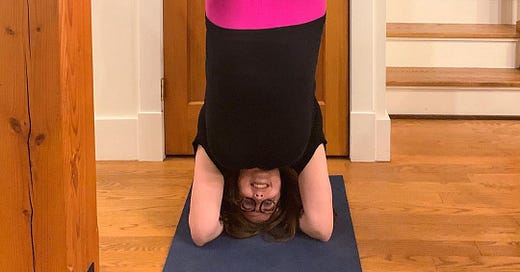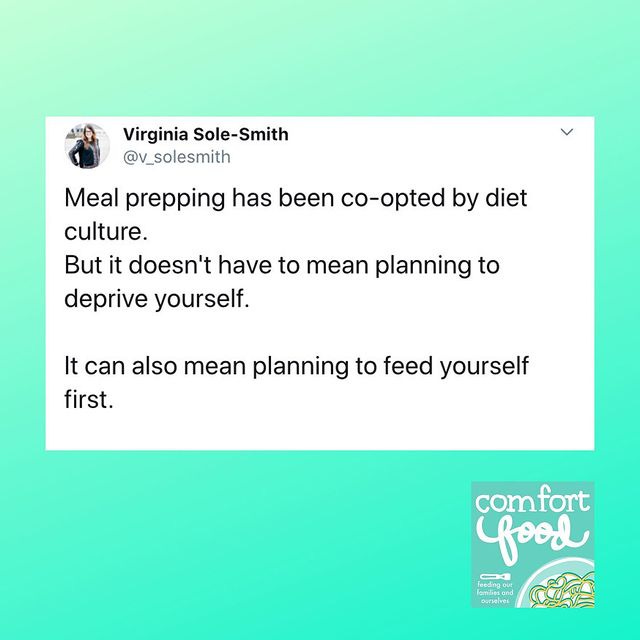
Sometimes people are surprised to learn that I write so much about eating disorders and food struggles, even though I’ve never had an eating disorder myself. The first answer to that is: I’m a woman who grew up in modern diet culture and we are none of us immune. I also have people in my life who have struggled deeply with eating, including my own daughter.
But the other answer is: No, I’ve never had an eating disorder. But I’ve come pretty close to having an exercise disorder. I’ve written about this a little bit over the years, but never told the full story. I’m not going to tell it all today either, mostly because it would involve sharing specifics that might be triggering to some folks reading this.
But I’ve been thinking a lot about my own exercise stuff and working on rehabilitating it and some of that thinking led me to write "Can The Fitness Industry and Body Positivity Co-Exist?" this month for Medium's Elemental. In reporting this story, I spoke with lots of folks working in the fitness world as personal trainers and group class teachers and they all told me how they struggled with the messages they felt required to promote, and the pressure to look a certain way. A few—most famously, Jessamyn Stanley—have broken ranks and done their own thing, often with stunning success. But others aren’t sure how to market an anti-diet message to a clientele that shows up on January 1 with big weight loss goals. They’re even less sure how to get gyms and other fitness companies to hire them.
Being a personal trainer tends to be a low-paying, unprotected job. It attracts people who love exercise, sure, or are naturally very flexible or strong or shaped in certain ways. But then it asks them to be fitness icons and health gurus in ways that are clearly dangerous for customers but also pretty problematic for the people doing that work.
In writing the piece, I thought a lot about how it would take a lot for me to willingly purchase a product branded as WW or Atkins or Whole30. I do drink Diet Coke (for the flavor, not calories saved!) and I buy a few foods (like the chocolate protein powder I put in my morning smoothie, also for flavor reasons) that could be considered diet culture staples. But I don’t, as a general rule, knowingly support the diet industry anymore. And that's been both fairly easy and quite deliberate.
But I have continued to support fitness brands—clothing lines, gyms, workout videos—that promote body shaming and weight loss. I’ve put myself through a barre workout or a pump iron class thinking I could just enjoy the workout and tune out the rhetoric. I’ve tried to see the best in brands making quasi attempts at body positive language.
And now, I’m gonna stop. The average American consumer spends $112 on fitness per month. I've got better uses for that money—and I bet you do, too—than giving it to companies that promote the kind of disordered thinking about food and bodies that I spend most of my professional life advocating against.

At first I didn’t think this was going to be particularly hard or heroic. My last gym membership expired in 2017. Most of my “workouts” these days are my daily yoga practice (which I do on my own or with Jessamyn Stanley’s video app) or walking in the woods near my house. I already had no interest in owning a Peloton. So mostly, I’m drawing this line as a way to keep myself safe; to avoid falling back down the rabbit hole. But I'm sure there will be challenge moments: A friend just told me what a great deal our local gym offers on a family pool membership for the summer. I'm gonna need new yoga pants soon. You get it. I may not be perfect about it but even stopping to consider a brand's track record on this issues before I spend feels like useful progress.
And, it’s still January and it feels good to resolve to quit fitness culture after so many years of diving in so deep. Want to join me? Share this newsletter and tell us why you’re quitting Big Fitness in 2020.
ALSO
Body image on YouTube: I spoke with Lindsay Dodgson at Business Insider Singapore about how the body positivity movement has been reinterpreted by YouTube influencers, a topic I previously wrote about for Elemental: “It’s like the messages have gotten so distilled, that we can now say loving your body means doing whatever you want to it, including altering it, to make it totally meet up to this really strict beauty ideal that we have,” I told Dodgson. “It’s like I’m defending my right to get a nose job or a boob job or all of these different procedures because this is how I’m being body positive. I’m making myself as beautiful as possible because I love myself that much.” You can read the whole thing here.
How I get it done: And, I talked to Claire Zulkey about proper family dinners, or #PFDs, for her newsletter, Evil Witches. The most important takeaway? “#PFD doesn’t mean you eat a perfect meal (or anyone else does). It means you spend some quality time with your family around food OF ANY KIND.” But you can read my whole response—the who/what/where/when/why of my family’s eating schedule—here.
Related:
You're reading Burnt Toast, Virginia Sole-Smith's monthly newsletter. Virginia is a feminist writer, co-host of the Comfort Food Podcast, and author of The Eating Instinct. Comments? Questions? Email Virginia.
If a friend forwarded this to you and you want to subscribe, sign up here.











